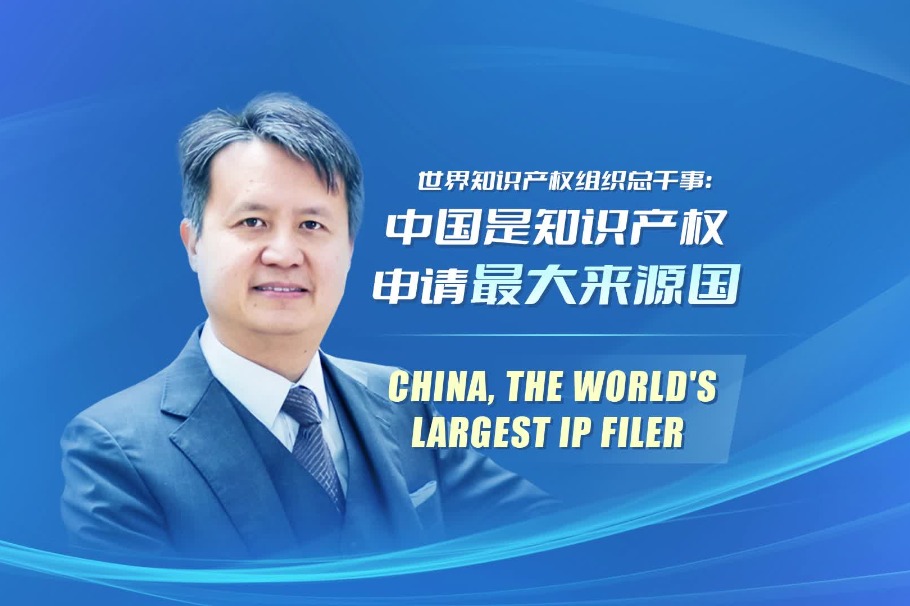Experts positive on China's IP progress


Despite Washington's criticism, US-China Business Council says protection better now
Amid the US accusations of intellectual property theft by China, companies and experts engaged with the Chinese market voiced different opinions.
US Vice-President Mike Pence, in a recent speech, accused China of continuing to "aid and abet the theft" of US IP and said the United States will move on to tackle the IP issues after completing a "Phase 1" deal with China.
"The Americans put a lot of pressure on China on improving IP protection and IP laws enforcement. Personally, I don't like the approach of putting pressure," said Frank-Jurgen Richter, chairman of Horasis, an international think tank headquartered in Switzerland.
"Both parties should sit together and find solutions. I think the China side is open for negotiation, discussion and dialogue to find a compromise," Richter said at the Horasis China Meeting, a platform for CEOs of the world's leading companies to actively engage with China and its leaders, in Las Vegas, Nevada, on Tuesday.
He said there's a significant signal in China's IP field that more and more IP cases are being filed by Chinese citizens in China. "Because they have realized that IP is at the center of a company's success and that it's something to protect. It's a changing mindset," he said.
Richter said the US should adapt to that fact that China will grow to become the world's largest economy, and the US should pay more attention to China's progress and contributions instead of the negative.
"For example, China is no longer just a 'me too', like a "copycat". We always seem to hear from Western countries that China is just copying, but it's something of the past; now China is at the forefront," he said.
Despite Pence's criticism of "case after case of intellectual property theft involving China" last year, the US-China Business Council's survey shows a different trend.
"We recently did a survey of our members and zero percent said IP is getting worse (in China), and many people said IP is getting better," said Craig Allen, president of the US-China Business Council, while attending the Horasis China Meeting. "So I think that's a very good indicator that progress is being made."
"Part of the progress has been the fact that we've all become much more aware and we understand how better to protect IP," said Roger Royse, founder of the Royse Law Firm based in Silicon Valley. "We understand a little bit how the rules are going to work. We have an IP lawyer in China who helps our companies with some of these issues."
He said it's a cultural reason that there are many more lawyers per population in the US than in most other countries. He said he's hopeful that there will be an internationally consistent standard of enforcement of IP rights in China.
Looking back at the history, every country lacked IP protection, said Joel Ruet, an economist and chairman of the BridgeTank, a Paris-based think tank. "It's only after the end of the World War II did America start being stricter on IP protection, and the same is true of the European countries in the 19th century," said Ruet.
"China is much more focused on protecting IP today than 10 to 20 years ago. That's obvious," he said.
To Stacy Kenworthy, CEO of HellaStorm, a Alpharetta, Georgia-based tech company, the opportunities provided by the vast Chinese market are more important than the transfer of technologies.
"The biggest thing is that China is very innovative by itself. It's going to solve the problem by itself. If they don't use our solution, then they will come up with their own solution," said Kenworthy. He said he would like to have opportunities and share knowledge instead of having zero opportunities.
"We know our challenge: if we share our innovations with China, it will be innovative and some day we will be competing. But we are comfortable competing. We will need to continue to be innovative," said Kenworthy. "But if we innovate, and we are competitive, as long as we understand that it's a mutual understanding as to what the rules are, then there should be a middle ground that's acceptable to both."
He also advised the American companies that are interested in entering the Chinese market to realize that "there are things that need to be observed and respected in China".
"If companies are not comfortable with what's asked of them, they always have the option to just not go," Kenworthy said. "So to me that's not forced. If you have the option to not participate, that's not forced."
Contact the writers at liazhu@chinadailyusa.com
Contact the writer at @chinadaily.com.cn




